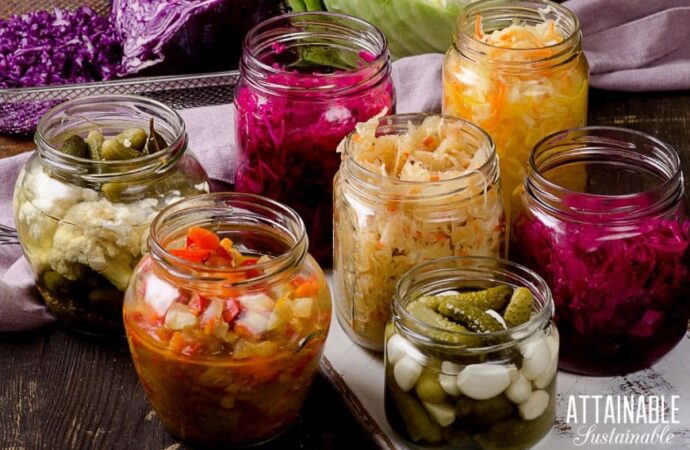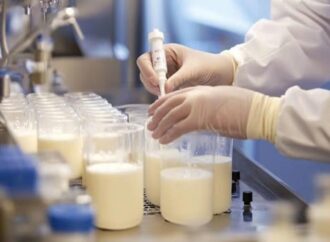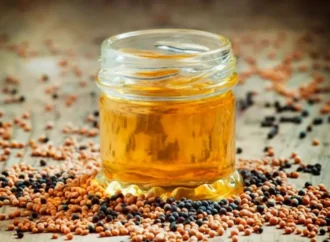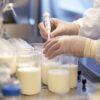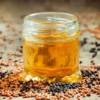Fermentation is a natural biological process where microorganisms, such as bacteria, yeast, and moulds, break down sugars and starches into simpler compounds like alcohol, lactic acid, and acetic acid. These by-products not only preserve food but also improve its flavour, texture, and nutritional value. Used for centuries, fermentation is still a key method in food preservation and safety today. It prevents spoilage, enhances shelf life, and supports the growth of beneficial microorganisms. This article explores how fermentation works, its benefits, and its essential role in food safety.
The Fermentation Process: How It Works
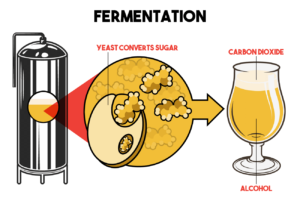
Fermentation involves microorganisms converting sugars or carbohydrates in food into by-products like alcohol, lactic acid, or acetic acid. The type of fermentation depends on the microorganisms and the food being fermented.
In alcoholic fermentation, yeast cells such as Saccharomyces cerevisiae (also known as “Baker’s Yeast” or “Brewer’s Yeast) break down sugars into alcohol and carbon dioxide. This process is essential in producing beer, wine, and spirits, where alcohol preserves the food by preventing spoilage from harmful microorganisms.
Lactic acid fermentation occurs when lactic acid bacteria convert sugars into lactic acid. This acid lowers the pH of the food, creating an environment that inhibits the growth of spoilage-causing bacteria. This process is used to make foods like yoghurt, kimchi, and sauerkraut. The lactic acid not only preserves these foods but also imparts their tangy flavour.
In acetic acid fermentation, microorganisms convert alcohol into acetic acid, which is key in making vinegar. The acetic acid gives vinegar its preservative properties, as its high acidity prevents harmful bacteria from growing.
Benefits of Fermentation
Food Preservation
Fermentation naturally preserves food by producing acids and alcohols that lower its pH. This acidic environment prevents the growth of spoilage-causing microorganisms. For example, the lactic acid produced during fermentation helps pickles stay fresh longer than their raw counterparts. Similarly, the acidic nature of fermented dairy products like yoghurt extends their shelf life.
Fermentation also helps store perishable foods, such as vegetables, for longer periods. Fermented foods like sauerkraut remain safe and enjoyable to eat long after their raw ingredients would have spoiled.
Enhanced Nutritional Value
Fermentation enhances the nutritional profile of foods by breaking down complex molecules into simpler, more digestible forms. For instance, fermenting soybeans into tempeh boosts their protein content and makes them easier to digest. Fermentation also increases the levels of essential vitamins, such as B12, folic acid, and biotin, which are produced during the process.
Additionally, fermentation reduces anti-nutrients like phytates, which can interfere with the absorption of minerals such as iron, calcium, and magnesium. By breaking down these compounds, fermentation improves the bioavailability of these essential nutrients.
Health Benefits: Probiotics and Gut Health
Fermented foods are rich in probiotics, beneficial bacteria that support gut health. Probiotics help balance the digestive system’s microbiota, promoting proper digestion, immune function, and overall health. Eating fermented foods like yoghurt, kefir, kimchi, and sauerkraut can improve digestive health by fostering a healthy balance of gut bacteria.
Research also suggests a link between gut health and mental well-being. By improving the balance of gut bacteria, fermented foods may reduce symptoms of anxiety, depression, and stress, showcasing the broader health benefits of probiotics.
Improved Flavor and Texture
Fermentation enhances the flavour, texture, and aroma of food. The acids, alcohols, and gases produced during fermentation give fermented foods their distinct taste. For example, yoghurt develops a sour flavour due to the lactic acid produced, and sauerkraut’s tanginess results from lactic acid fermentation. These flavours evolve as microorganisms break down sugars and proteins in the food.
Fermentation also improves the texture of food. In bread-making, yeast fermentation produces carbon dioxide, which causes the dough to rise, resulting in a light, airy texture. Cheese undergoes fermentation that alters the texture of milk proteins, making the cheese firmer and more flavorful.
Fermentation and Food Safety: How It Prevents Spoilage
Fermentation helps prevent food spoilage by lowering the pH of the food and creating an acidic or alcoholic environment that is inhospitable to harmful microorganisms. The lactic acid in pickled vegetables, for example, prevents the growth of bacteria like E. coli and Salmonella. Similarly, the alcohol in fermented beverages such as beer and wine acts as a barrier to spoilage-causing microorganisms.
The beneficial microorganisms responsible for fermentation also play a role in food safety by outcompeting harmful bacteria. This competitive exclusion helps prevent contamination, further reducing the risk of foodborne illness.
Are Fermented Foods Safe to Eat?
Fermented foods are generally safe to eat when prepared and stored properly. The fermentation process itself acts as a preservative, but it’s important to follow proper hygiene practices during food preparation. Using clean utensils and containers and ensuring appropriate storage temperatures are essential steps to avoid contamination.
Fermented foods have been consumed for centuries without major issues, but it’s important to look for signs of spoilage, such as mould, off smells, or unusual textures. These could indicate that harmful bacteria have proliferated, making the food unsafe to consume.
Conclusion
Fermentation is a time-tested process that not only preserves food but also improves its flavour, texture, and nutritional value. By producing acids and alcohols, fermentation prevents spoilage and extends the shelf life of many foods. Fermented foods offer significant health benefits, particularly in supporting gut health through probiotics. In an era where food sustainability and safety are critical, fermentation continues to be an indispensable tool in food preservation. Its role in enhancing nutrition, preventing spoilage, and providing beneficial microorganisms makes it a valuable process for both food producers and consumers alike.
 Food Manifest
Food Manifest 